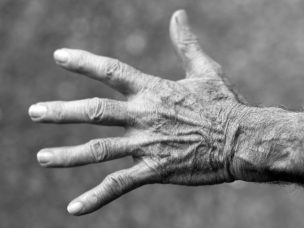Oncology
Even Low-Intensity Exercise Can Help During Cancer Treatments
If you have cancer and you’re trying to exercise to boost your health, new research suggests you don’t have to knock yourself out during your workout. Light exercise is just as beneficial as more demanding workouts for cancer patients, the researchers found. Previous research has shown that physical activity can improve cancer patients’ physical and...
FUS Ablation Feasible for Intermediate-Risk Prostate Cancer
Targeted focal therapy with magnetic resonance imaging (MRI)-guided focused ultrasound ablation is feasible for the treatment of intermediate-risk prostate cancer, according to a study published online Feb. 2 in Radiology. Sangeet Ghai, M.D., from the University of Toronto, and colleagues conducted a prospective phase II trial involving men with unifocal clinically significant prostate cancer visible at...
Why Immunotherapy Therapy Works Better for Black Men With Prostate Cancer
Higher levels of a certain type of immune cell may explain why immunotherapy for prostate cancer is more effective in Black men than in white men, researchers say. The finding could lead to immunotherapy-based precision treatment for localized aggressive and advanced prostate cancer in all races. For the study, the researchers analyzed 1,300 prostate tumor...
Blacks Underrepresented in Cancer Drug Trials: Study
FRIDAY, July 10, 2020 — U.S. government-funded clinical trials for new cancer treatments have more Black participants than those run by drug companies, but Blacks are still underrepresented in cancer studies, researchers say. The SWOG Cancer Research Network team analyzed data from 358 clinical trials — 85 drug industry trials and 273 SWOG trials. They...
More Than Half of Cancer Patients Willing to Enroll in Clinical Trials
TUESDAY, Oct. 13, 2020 — More than half of patients offered participation in cancer clinical trials are willing to participate, according to a study published online Oct. 6 in the Journal of the National Cancer Institute to coincide with the ASCO Quality Care Symposium, held virtually from Oct. 9 to 10. Joseph M. Unger, Ph.D., from...
AHA News: Few Clinical Studies Examine High Blood Pressure Treatments for Black Americans
MONDAY, Dec. 7, 2020 — High blood pressure affects Black adults in the U.S. more than any other group. But studies exploring its impact on them remain scant, an analysis of clinical trials over the past decade shows. The analysis, published Monday in the Journal of the American Heart Association, found that of the 956...
Improved Age Disparity in Glioblastoma Clinical Trials
Glioblastoma (GBM) is the most common malignant brain tumor originating in the brain. This study, published in CNS Oncology, analyzes disparities in GBM clinical trials. Due to the prevalence and severity of GBM, gaining an accurate understanding of how the disease impacts the general population is essential. Radiation plus concurrent adjuvant temozolomide remains the standard...
Gender Disparities Found in Oncology Clinical Trials
Recruitment and enrollment of diverse participants representative of the general population are essential to gain meaningful insight into novel drug therapies. Oncological studies have been previously noted as lacking gender balance, which can result in skewed clinical trial results. This study, published in the Journal of Clinical Oncology, focuses on drug registration trials in particular,...
AACR Reports Racial-, Ethnicity-Based Cancer Health Disparities
TUESDAY, Oct. 13, 2020 — There are considerable racial- and ethnicity-based cancer health disparities in the United States, according to a report published online Sept. 16 by the American Association for Cancer Research. John D. Carpten, Ph.D., from the University of Southern California in Los Angeles, and colleagues discussed cancer health disparities in the U.S....
More Medical News














